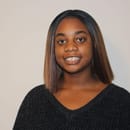So often in movies, we see Black or IPOC characters in the position of being the best friend or used as comic relief, and quite frankly — I’m tired of it. It’s 2020 and I think it’s time we expand past the ‘Black best friend’ trope.
In films, tropes are usually characters that have universally understood characteristics or stereotypes. We can see this in movies like Clueless where the main story revolves around Cher but Dionne, her best friend, is used for laughs. Yes, her outfits were totally on point, but we didn’t experience any sort of growth from her. All she did was add some diversity to the screen but nothing really impactful.
In one of my favourite childhood TV shows, Kim Possible, we are introduced to the character Monique. She is Kim’s best friend and can usually be seen encouraging Kim and giving sassy one-liners. Even though we meet Monique in season 1, we don’t actually start learning more about her until season 2. While Kim spends a fair amount of time with Monique, we never learn about Monique’s past, or her family or really anything personal about her. Yes, – this show isn’t about Monique – but knowing where she comes from is what adds so much depth to her character and explains why she is such a loyal friend for instance. While Black people can be funny, I mean there’s Bernie Mac or even Chris Rock (need I say more?) it doesn’t need to be the only position they hold.
The problem I find with these limiting characters is that so often the movies and films we consume do not star BIPOC as their lead characters. So we are only experiencing a one-sided or flat idea of what these people could be. Not every BIPOC is going to act or look like the ones depicted in our favourite movies. Not only do we get an inaccurate representation of a group of people in these secondary characters, but we also rarely see them in lead character spots. More importantly, white people have been writing and telling the stories of Black people for years, and inaccurately I might add. One of the earliest and horrific depictions of Black people in media would be the film The Birth of a Nation (1915) which shows Black people as nothing better than animals and the Ku Klux Klan as some sort of saviour.
I believe one of the solutions to broadening the types of characters that are written is to have actual BIPOC writing these stories. Who better to write the stories of Black people than Black people themselves. Being able to tell stories from personal experience gives a special sort of authenticity, that someone who wasn’t in that position wouldn’t be able to tell.
In a Variety article, Matthew A. Cherry, creator of Love Hair said, “If you look at a big majority of studio films that have come out, be they biopics or stories with primarily Black characters, a lot of times you have white screenwriters who are able to tell those stories,” he says. “This is tricky, because a lot of times they’ll say, ‘OK, we want a big-name writer on it,’ or ‘We need to rely on the credits of said writer.’ It’s just like a lose-lose situation because you can’t get credits if you don’t get opportunities. And the people that’ve been getting opportunities for the last 30, 40, 50 years haven’t been us.”
Growing up I always liked my skin colour but felt insecure around my hair. I think if there was more representation in the shows I watched and if I had been able to see someone who looks like me – with my hair type—I would have felt more comfortable wearing different Black hairstyles at my predominately white school.
I will say that when I do see movies with more representation like The Get Down or Pose, I like to stream and support. In the future, I want to see more BIPOCs creating movies or television shows for the media and to create them with a more diverse cast that actually reflects society.



